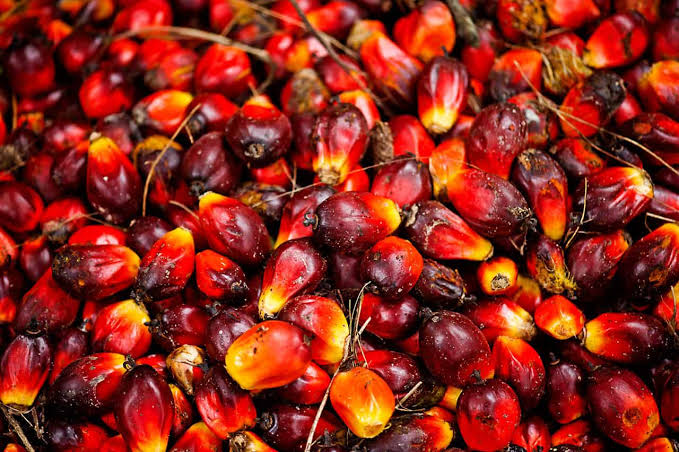
NPPAN Urges Ban on Foreign Participation in Primary Oil Palm Production to Boost Local Wealth

The National Palm Produce Association of Nigeria (NPPAN) has urged state and local governments to prevent foreign investors from participating in primary oil palm production in Nigeria during an interview with the News Agency of Nigeria (NAN) in Abuja on Monday, Amb. Alphonsus Inyang, NPPAN’s National President, expressed his concerns.
Inyang criticised certain states for promoting practices he deemed harmful to national development. He argued that allowing foreigners to engage in primary production activities, such as planting seedlings, managing nurseries, harvesting, and milling, would reduce Nigerian citizens to mere labourers in their own country.
Foreign investors will pay peanuts to our people as plantation attendants while they declare billions as profit every year, and our people will struggle to feed, Inyang said. We do not want foreign investors to come and plant palm trees and any state promoting such should stop; they should not be involved in primary production.
He emphasised that foreign investors should focus on downstream activities, such as processing and adding value, rather than upstream activities, like planting. Inyang suggested that Nigerian citizens handle the planting while investors provide necessary inputs such as planting materials, fertilisers, herbicides, and land development. Investors could also offtake the harvests.
Preventing foreigners from engaging in primary production, Inyang explained, would ensure that wealth generated from the oil palm sector is distributed from rural communities, the primary producers, to millers and manufacturers, who would be the investors. He proposed that investors concentrate on building mills and supplying inputs for NPPAN members, who would then carry out the planting.
We want a robust out-grower system such as the Indonesian model of the ‘Core and the Plasma.’ Such a model will create millionaires out of our people instead of taking lands from our people and allocating them to big men. The government should talk to our association on how to make this model work, Inyang stated.
The Nigerian palm oil industry is highly fragmented, with small-scale farmholders responsible for over 80% of local production, according to PwC. Established plantations contribute less than 20% of the total market. Despite their small-scale operations, the two largest producers, Okomu and Presco, hold a significant market share in terms of value due to their combined capacity, outpacing the small-scale farmers.
These local farmers, working on approximately 1.6 million hectares of land, produce about 80% of the total output. However, the dominance of small-scale farmholders has led to lower overall production compared to the country’s potential. This shortfall is attributed to outdated manual harvesting techniques, which often result in considerable wastage.
Read more: Victony Set to Release Debut Album ‘Stubborn’ on June 21, 2024
About The Author
Related Articles
Tyla Wins Best African Music Performance at 2026 Grammys
South African singer Tyla has won the Best African Music Performance award...
ByWest Africa WeeklyFebruary 2, 2026Grammys Honour Fela Kuti With Historic Lifetime Achievement Award
Legendary Nigerian musician and Afrobeat pioneer Fela Anikulapo Kuti has become the...
ByWest Africa WeeklyFebruary 2, 2026Wizkid and Asake Join Forces on New Collaborative EP
Wizkid and Asake have released a collaborative EP, uniting two of Nigeria’s...
ByWest Africa WeeklyJanuary 29, 2026Wizkid, Seyi Vibez, and Asake Dominate Spotify’s 2025 Wrapped in Nigeria
Spotify has released its 2025 Wrapped data, and the results show another...
ByWest Africa WeeklyDecember 4, 2025











